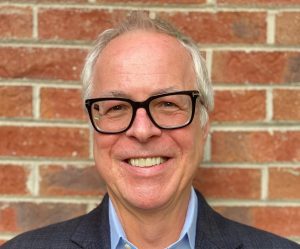Are You Consuming Cancer Causing Foods? The Price of Roundup in Our Food Supply

INTERVIEW ON THE PRICE OF BUSINESS SHOW, MEDIA PARTNER OF THIS SITE.
Recently Kevin Price, Host of the nationally syndicated Price of Business Show, interviewed Dr. David Wilcox.

Health Transparency: The Real Truth with Dr. David Wilcox
Glyphosate has been used as an herbicide to regulate plant growth. It is the main ingredient in the weed killer Roundup. First registered for use in the U.S. in 1974, it’s now the most widely used in farms and gardens across the country and sold in more than 750 products. Used in food crops, glyphosate can be found virtually everywhere in the food chain. Concerns over the link between glyphosate toxicity and cancer are on the rise.
Recently the company Monsanto (now owned by Bayer) paid a man $289 million in damages after he developed cancer from using Roundup. Yet the company statement after the lawsuit is “Glyphosate has a 40-year history of safe and effective use. The overwhelming conclusion of experts worldwide … has been that glyphosate can be used safely.”
This is hardly the truth as glyphosate can’t be defined as “safe” by any stretch of the imagination. The International Agency for Research on Cancer (IARC) stated in 2015 that glyphosate is probably linked to cancer. Since then, test after independent test – the latest from the Environmental Working Group (EWG) – has found dangerous levels of glyphosate in everyday American foods.
Glyphosate increases the risk of non-Hodgkin’s lymphoma by 41% according to one study. Glyphosate has also been associated with a host of other health issues, including liver damage, kidney disease, reproductive problems, and birth defects.
In the wheat and oat industry, it is reported that at harvest many growers use glyphosate based weed killers by spraying them on their wheat and oats to kill any fungus. After that, they are harvested and introduced into the food supply. That healthy box of Cheerios contains glyphosate which may increase the risk of cancer to those who consume the product. Think your oatmeal is healthy? Guess again, as glyphosate has been found in several brands of oatmeal.
What can you do to decrease the chances that you are consuming glyphosates? You can buy foods that are certified organic. Although these foods may cost you a little more money initially, the return on investment when it comes to your health is worth it.
The Detox Project, which uses an FDA-registered food testing lab to test for toxic chemicals, recently launched a “Glyphosate Residue Free” label that companies can apply for to certify their products. This isn’t widely available but it is gaining momentum.
You can grow your food. The hydroponic movement of growing food in indoor spaces is growing. Many companies offer growing products that let you grow your food using grow lights and advanced technology in the comfort of your home.
Avoid using commercial weed killers. There are many natural alternatives to killing weeds such as essential oils, vinegar, commercial dish soap etc.
Many of the things in the American food supply are not good for you such as high fructose corn syrup which we covered in a previous podcast. The food is geared to get you sick and then the healthcare system benefits from your sickness. In our fee-for-service healthcare system, if you don’t show up sick, the system (hospitals, pharmacies, etc.) doesn’t make any money. Many Americans save their entire lives to retire and end up spending the bulk of their savings on healthcare in their golden years. Don’t let that be you, do your research and understand what you are putting into your body. Food is just one important aspect. Be a partner in your healthcare.
You can purchase Dr. David Wilcox’s book How to Avoid Being a Victim of the American Healthcare System: A Patient’s Handbook for Survival on Amazon at the following link https://lnkd.in/diZKYC2
Follow me on social media at:
Facebook – https://www.facebook.com/Dr-David-Wilcox-102834559130574
Twitter – https://twitter.com/DrDavidHelps
You Tube – https://www.youtube.com/channel/UCyYHs6ttrJ5l6-kUc-lEP9Q
According to a statement, “Healthcare is complex and that is not an accident. It is complex by the healthcare entities vying for your healthcare dollars. Covid has exacerbated the American Healthcare System, which was fragile, to begin with. Many clinicians are leaving healthcare due to burnout. How does the average layperson navigate the complexities of the American Healthcare System where a prescription could cost you $5 at one pharmacy and $500 at another? What does the average layperson do when their insurance company rejects their claim? Proactive education of the American Healthcare System prior to accessing it is the key to safely navigating the healthcare system. Until now, little information has been available to provide the layperson with the knowledge they need to be a better partner in their health care. Dr. David Wilcox’s book How to Avoid Being a Victim of the American Healthcare System: A Patient’s Handbook for Survival” is a game-changer and will provide you with the skill set you need to navigate the American Healthcare System.
Website: https://drdavidwilcox.com/
Dr. Wilcox is a Doctorate prepared nurse who also holds a Masters in Health Administration and is Board Certified in Nursing Informatics. Dr. Wilcox has 28 years of healthcare experience in which he worked as a bedside nurse, hospital administrator, and in healthcare information technology which has helped him to develop his unique perspective on the American Healthcare System.
Dr. Wilcox is the author of the book “How to Avoid Being a Victim of the American Healthcare System: A Patient’s Handbook for Survival (2021)” available at https://www.amazon.com/dp/0578878364
Dr. Wilcox currently resides in North Carolina with his wife and their three dogs.
Dr Wilcox’s website: Dr. David Wilcox – Healthcare, American Healthcare System (drdavidwilcox.com)
LISTEN TO THE INTERVIEW IN ITS ENTIRETY HERE













